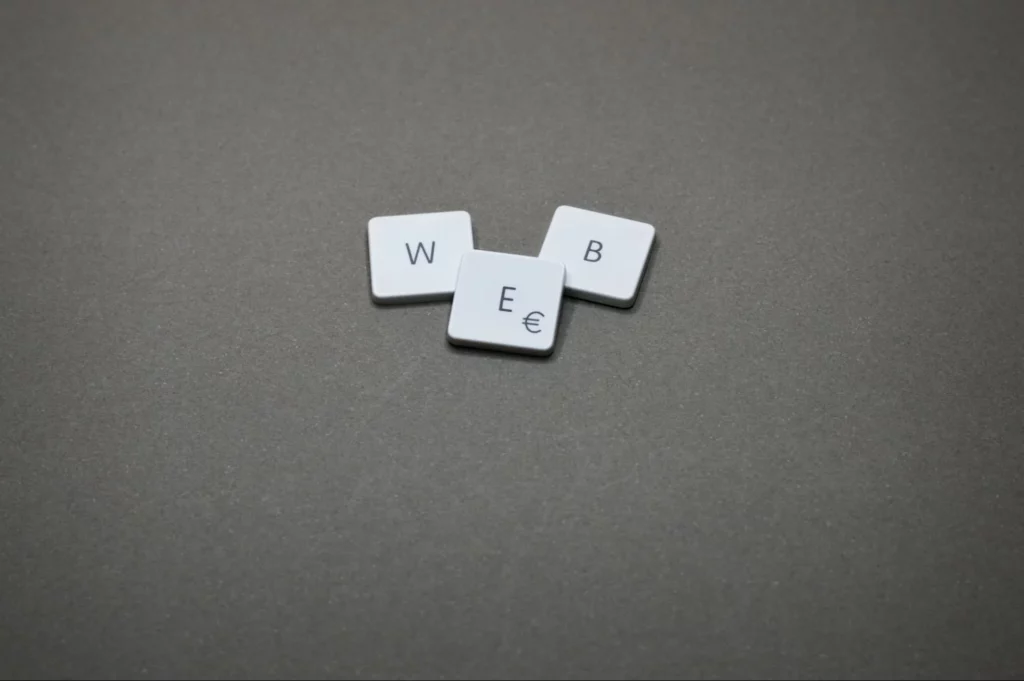As a founder, I’ve had my eye on Web3 for a few years.
How will Web3 impact us? As a decentralized Q&A site, should we become really decentralized in the Web3 sense and sign everything? How much is hype? How much is real?
To get a pulse on where we stand in mid-2023, I asked founders at Terkel what their thoughts were on Web3 vs. Web2. Here’s what they had to say.
Will Web3 Replace Web2?
From Web 3 taking a long time to become the dominant paradigm to it also representing a legitimate shift in the way we think about the Internet, here are six answers to the questions, "Do you think Web3 will replace Web2, and if so, what will lead people to adopt Web3? If not, why?"
- Most People Like How the Internet Works Now
- They Might Coexist
- Web3 Will Take Over Because It's More Secure
- User Autonomy Welcomes Web3
- It Will Replace It Eventually
- Web3 Has a Perceived Association With Scams
Most People Like How the Internet Works Now
Web3 is a promising application of blockchain technology, but it will take a long time to become the dominant paradigm on the internet. The biggest obstacle to the adoption of Web3 is that most people are content with how the internet works now.
There are many popular websites and services that people use every day, and they will not stop using them just because there's a new, better option.
Even if Web3 is technically superior, it will be a long time before enough people find it to be worth the switch. In addition, there are many technical issues that need to be solved before Web3 can be a viable alternative to Web2. For example, the Ethereum blockchain can't currently handle the volume of transactions that would be required to support a truly global internet. However, if these issues can be solved, Web3 could be a revolutionary development.
 Matthew Ramirez
Matthew Ramirez
CEO, Paraphrase Tool
They Might Coexist
Even though Web3 has the potential to replace Web2 as the dominant iteration of the internet, many users are more skeptical and believe that Web2 will continue to exist alongside Web3, but with increasingly decentralized and interoperable features.
One of the primary drivers of Web3 adoption is the potential for increased security, privacy, and control over personal data compared to Web2. Web3 is built on a decentralized, blockchain-based infrastructure that aims to give users greater control over their digital identity and data and reduce the power of centralized intermediaries like large tech companies.
However, the widespread adoption of Web3 is not without challenges. One major hurdle is the need for improved user experience and ease of use, as early Web3 applications can be complex and difficult to navigate for non-technical users. Ongoing development and adoption of decentralized technologies will continue to drive innovation and change within the technology landscape.
 Brenton Thomas
Brenton Thomas
CEO, Twibi Digital Marketing Agency
Web3 Will Take Over Because It's More Secure
Web3 will definitely replace Web2. The existing Web2 platforms are based on servers, which are vulnerable to hacking. Web3, because it's based on distributed computing through blockchain, is far more secure. For example, government agencies relying on Web2, like the IRS, have previously suffered hacks that compromised people's data.
Because that data is distributed under Web3, it's much more difficult for hackers to get that information. To put it in simple terms, they would have to break into many devices, instead of one. Over time, more and more industries will take advantage of the security that Web3 offers.
 Hamid Pishdadian
Hamid Pishdadian
CEO and Co-founder, SQE Holdings
User Autonomy Welcomes Web3
Web3 is a new paradigm that is changing the way we interact with the Internet. While Web2 may never be completely out of use, as people seek greater control over their personal data and digital identities, Web3 might just become the norm. Other factors that could lead to greater adoption of Web3 include the rise of decentralized finance, blockchain-based gaming, and other applications that leverage the benefits of Web3 technologies.
 Marco Genaro Palma
Marco Genaro Palma
Co-founder, TechNews180
It Will Replace It Eventually
Yes, I believe Web3 will eventually replace Web2. This shift has its reasons—for example, secure digital identities, improved scalability, and automated agreements. Secure digital identities will simplify the login process, as users will no longer need to update multiple passwords regularly.
Blockchain technology is much more scalable than the databases of Web2. Last but not least, automated agreements between two parties can be established through smart contracts written on a decentralized system like Ethereum—removing third-party intermediaries and making transactions faster and more cost-effective.
If we consider these aspects, it's clear why people would want to adopt Web3; however, there could still be concerns related to its complexity, which might prevent some people from transitioning into something so unfamiliar. For this reason, further education about distributed ledger technology must occur if widespread adoption of decentralized systems is expected.
Web3 Has a Perceived Association With Scams
The term "Web3" has become associated with scams and failed crypto for some people. Unfortunately, the hype surrounding new technologies often attracts scammers looking to make a quick profit, which can give legitimate projects a bad name.
It's important to recognize that Web3 represents a legitimate shift in the way we think about the Internet, with a focus on decentralization, privacy, and user control. While it's true that some projects have failed or turned out to be scams, that's a risk with any new technology or investment; rather than dismissing Web3 outright, we should look for projects that have a clear vision and a track record of success.
The association between Web3 and scams is like assuming that all used car salesmen are untrustworthy because a few of them have been caught selling lemons.
While there are certainly poor actors in any industry, it's important not to let that overshadow the legitimate and valuable work being done by many reputable projects in the Web3 space.
 Robert Wolski
Robert Wolski
Co-founder, Halftone Digital
Submit Your Answer
Would you like to submit an alternate answer to the question, "Do you think Web3 will replace Web2? If so, what will lead people to adopt Web3? If not, why?"

